by Charlene Muhammad
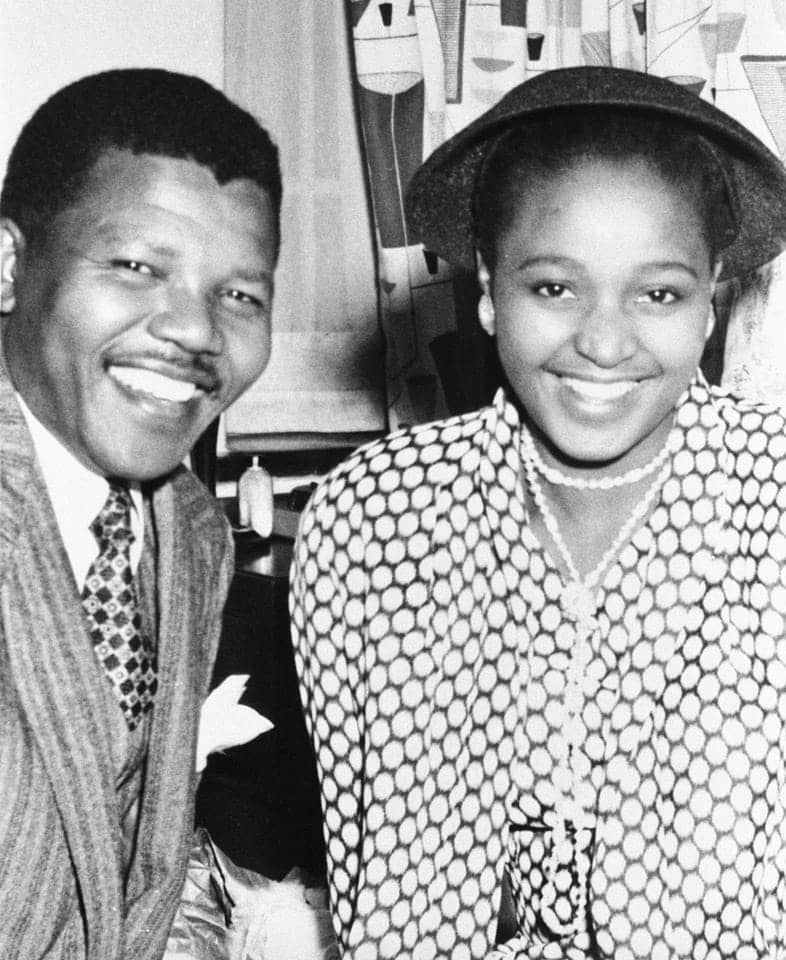
“A pivotal question people have to answer is would there have been this iconic Nelson Mandela without the resistance work of Winnie Mandela?” asked attorney Ezili Dantò of the Haitian Lawyers Leadership Network.
Winnie Mandela was arrested, tortured and imprisoned for daring to wage war for her people against the oppressive South African apartheid regime. She was arrested in 1969 under the Suppression of Terrorism Act, put in solitary confinement for 17 months and after that placed on house arrest.
“Everybody wants to be happy, but at the end of the day, what is the message that we’re getting? Just like they reduced Martin Luther King to ‘I Have a Dream,’ they want to reduce [Nelson Mandela] to the moment he was released. So that glorifies them, because obviously they’re human because they released him,” Dantò told The Final Call.
But what about the massacres, trauma and the current situation of Africa, she continued, saying, “They will run over the dead bodies of all of the dead children at Soweto. I mean I haven’t heard the word Soweto once during this stuff!” Attorney Dantò is referring to the Soweto Uprising of June 16, 1976, a series of protests led by high school students in Soweto, where Blacks were confined near the major city of Johannesburg, South Africa.
Some 20,000 student demonstrators were protesting the White-minority regime’s order that they learn Afrikaans, the language of their oppressors. Police opened fire on the students, killing more than 360 young people.
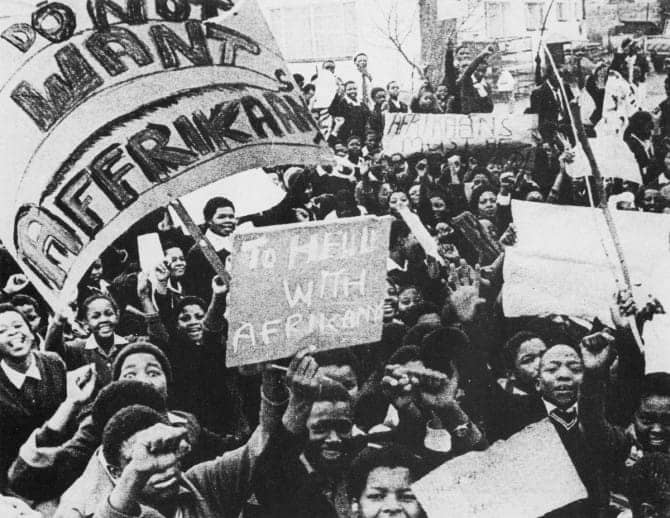
“It is difficult for me to believe that our brother Nelson Mandela would have been able to withstand the 27-plus years of incarceration had it not been for the loyalty and love of Winnie Mandela,” she said.
Remember, Dr. Muhammad continued, he was only allowed a visitor for about 30 minutes, once every six months and they could only discuss personal matters when she visited. Talk of the anti-apartheid movement or the struggle was strictly forbidden. Had it not been for Winnie’s efforts, Mr. Mandela could have slipped from the consciousness of the people rather than have his image grow stronger, she said. “I believe had there been no Winnie, there would have been no Nelson,” Dr. Muhammad said.
Despite their divorce in 1996, which came under the weight and pressure of the South African government’s very negative views of her, harsh criticism, media assaults and pressure, for a marriage to survive nearly three decades of incarceration, Winnie Mandela deserves a place in history, Dr. Muhammad said.
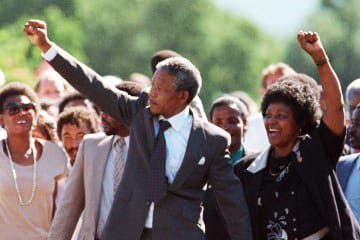
But Winnie Mandela was the target not only of the government but of politics and the press, speaking her mind and speaking strongly. Detractors and enemies tried to label her a firebrand and a political liability.
“She deserves her place in history and I believe she will have it with her name right alongside his,” said Dr. Muhammad.
Winnie Mandela was the living face of the anti-apartheid movement while Nelson Mandela was incarcerated, said Dr. Julianne Malveaux, activist, economist and former president of Bennett College for Women. “By the living face, I mean the person who we went to. We had no access to Nelson Mandela to receive statements, to receive marching orders, to hear,” she said.
Winnie Mandela has never been seen in her full humanity, so many are talking after the fact, Dr. Malveaux said. But the second wife of Nelson Mandela was separated from her husband for 27 years, and though a trained social worker, she became a leader of a movement. What can people really say about such a woman? Dr. Malveaux asked rhetorically.
“People give great props to widows. They deify widows and we’ve had our share of them here in the United States: Coretta King, Betty Shabazz, Jackie Kennedy. We basically lift these widows up; and in the case of Winnie Mandela, I’m not sure that she was ever fully lifted as we might have liked to see her lifted,” Dr. Malveaux continued.
Dr. Malveaux participated in the Free South Africa Movement in 1984. She led an initiative in San Francisco to divest the city’s pension fund from companies doing business with South Africa. There was a lot of contact with the African National Congress, and Winnie Mandela was always lifted up because she was the face, the voice of marching orders, Dr. Malveaux recalled.
“Certainly their lives have evolved since Nelson Mandela was released, since there have been a number of challenges. As he went on to marry Graça Machel and all of that, their lives have certainly diverged but it would be irresponsible, irresponsible to ignore the role that Winnie Mandela played in all of this,” Dr. Malveaux told The Final Call. “She is and remains a heroine, that she held the banner up where her husband was unable to, and that any frailties that anyone would compute to her, no matter how challenging, have to also be looked at contextually.”
“She is and remains a heroine, that she held the banner up where her husband was unable to, and that any frailties that anyone would compute to her, no matter how challenging, have to also be looked at contextually.” – Dr. Julianne Malveaux
Rev. Marcia Dyson, founder and CEO of the Women’s Global Initiative, a for-profit women’s advocacy organization, agreed. Winnie Mandela endured things while her husband was imprisoned to allow the African National Congress to go forward, she said.
Rev. Dyson noted that Winnie Mandela was the first lady of her people before Nelson Mandela became president – but has never been awarded the leisure, the pleasure, the respect for her sacrifices and giving her life as a woman, mother and wife for the liberation of her people.
“She was a general. She was a warrior. She was a mother,” said Rev. Dyson. It would be a travesty to undermine her importance even at the sunset of Nelson Mandela’s death, she added.
Charlene Muhammad, national correspondent for The Final Call, where this story first appeared, can be reached via Twitter @sischarlene.
From ‘Being a Black Woman in the World’ by Winnie Madikezela Mandela, March 28, 2006: “Black women are discriminated by the white supremacy; they have to contend with male prejudice fed by patriarchal notions; they suffer abuse from white women who are also beneficiaries of white supremacy. At the same time, they are expected to form alliances with these women to defeat male privilege. They are expected to be in solidarity with their male folks to fight racial oppression. In this regard, they have little choice. They cannot sit on the sideline and watch the Black male being reduced to an endangered species. After all, these men are the fathers of their children, their lovers and their sons. In short, there is no other species that understands oppression as Black women do.”
Madiba is dead: Condolences to heroic mother Winnie
by Ezili Dantò
Nelson Mandela is dead at 95 years old. The African National Congress liberation movement he led helped make white minority rule and apartheid in Africa a monstrous reality no decent human would wish to be associated with.
Since Mandela’s death, the same international powers that keep the structural conditions alive for Black suffering worldwide are universally heralding the man and his great achievements. The same corporatocracy that helped keep South Africa and the global South in economic chains and political instability to increase their money-making profits are lining up to have their pictures taken at the funeral.
Nelson Mandela and the South African peoples’ long struggle is reduced to a celebration of one man who spent 27 years in prison, yet doesn’t hate his white oppressors or wish them the violent deaths, deprivations and grief they metered out to millions of South Africans.
Nelson Mandela and the South African peoples’ long struggle is reduced to a celebration of one man who spent 27 years in prison, yet doesn’t hate his white oppressors or wish them the violent deaths, deprivations and grief they metered out to millions of South Africans.
In fact, African lands, control of resources and properties taken through genocide were kept by the white minority. The racist oppressors gave up fairly nothing, are today richer, without guilt and no longer international pariahs. Mandela supposedly forgave them for their global racist system!
The ever-present colonial message is that Mandela is honorable and great for this appeasement. But most other Blacks are corrupt, criminal, inferior, violent. His former wife, Winnie Mandela, is generally put in this category. This is basically the totality of the message being uplifted as the meaning of the Mandela legacy.

Another missing part of the story is that apartheid, white minority rule and neocolonialism is a global system and did not end with the release of Nelson Mandela.
Hardly ever mentioned favorably is the role of the Black African and Cuban soldiers in defeating the minority government. Especially pivotal was the defeat of the South African apartheid army at the Battle of Cuito Cuanavale in Angola – a defeat in combat that Nelson Mandela himself said hastened the end of legal apartheid and his release from prison.
Also brushed aside is that Winnie Madikizela-Mandela, Nelson Mandela’s wife, kept the South African Black liberation movement going during the 27 years her husband was in prison and after.
With her freedom-fighting husband locked up, heroic mother Winnie Mandela had to manage her own needs and the care of her children alone while being hounded by the apartheid police at every turn. Imposed griefs like this, as well as the millions massacred and removed under colonialism in Africa, are glossed over in the Western media’s rush to reinforce the colonial narrative that Black leadership greatest lie only in the ability to take the system’s punishment without anger and constantly express gratitude and awe for the few assimilated ones allowed to move into “white areas.”
With her freedom-fighting husband locked up, heroic mother Winnie Mandela had to manage her own needs and the care of her children alone while being hounded by the apartheid police at every turn.
The pivotal question is, would there have been this iconic, revered Nelson Mandela without the resistance work of Winnie Mandela and others who defended their natural and inalienable human rights and had nothing to atone for, compared to the horrors suffered under direct white minority rule and apartheid?
Is putting a Black face in command of the same racist, profit-over-people economic system – as with President Barack Obama in the U.S. – a great change?
In an exclusive interview with CCTV, the former Mrs. Mandela explains how she took on the mantle of leadership after Nelson Mandela went to prison despite the worst of the apartheid regime.
This interview was filmed at the same house in Johannesburg where Winnie and Nelson Mandela lived upon his release from prison and where he wrote his biography, “Long Walk to Freedom.”
This writing remembers Winnie Mandela and the South African women and men like Chris Hani who kept the liberation movement going, giving up their lives, freedom and personal happiness. This post honors the other Nelson Mandela – the warrior who took up arms to defend his people, not the 72-year-old gracious but accommodating man who walked out of Robben Island and promptly became the corporate figurehead for “good liberation” sold to a world in need of sanity.
Mandela liberated the oppressor.
But Janjak Desalin would ask: “What about Africa’s children, their equitable share in wealth, health, security, wholeness, dignity – a decent standard of living? What about the oppressors atoning for the unspeakable atrocities Black South Africans endured?”
It’s been duly noted that Mandela “agreed to a bad deal for the Blacks.” Through Mandela, white capital was able to keep its vice grip on South Africa’s economic power while the masses were given a beguiling opium in the form of Madiba magic.
Apartheid Did Not Die from John Pilger on Vimeo.
This post shares a few worthy links and excerpts of tributes to Mandela. It sends condolences to the still suffering peoples Mandela gave his life force and liberty to represent.
For Winnie Madikizela-Mandela, who should not have had to suffer more humiliation after the release of her husband from 27 years of wrongful imprisonment, and for all the women, men and children of all the Sowetos in South Africa who endured the white minority’s brutality, face the continuing legacy of apartheid in South Africa, we Haitians who are battling Dominican Republic apartheid, loss of citizenship and a 10-year U.S.-Euro occupation behind U.N. guns and humanitarian imperialism in Ayiti, say, “You’re not alone.”
Nou la! Desalin’s descendants are still here, not reconciling with injustice. Nou pap bay legen. The long walk to freedom continues.
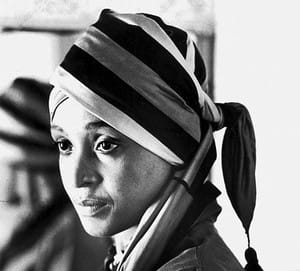
The world awaits.
Will the first in their “new world” Black republic, Ayiti, and the latest Black republic, South Africa, finish the long walk to Black independence? Help get rid of white minority rule – neocolonialism worldwide – and its profit-over-people system? Live with independence, transparent and participatory democracy without the global white minority’s interference? Replace selections by the global white powers with one-person-one-vote elections?
The same white supremacist, profit-over-people system that pronounced Black Haiti not ready for independence in 1804, also, nearly 200 years later in 1994, opined that Black South Africans were not ready to rule themselves without the colonial white minority’s economic, cultural and social controls and conditions.
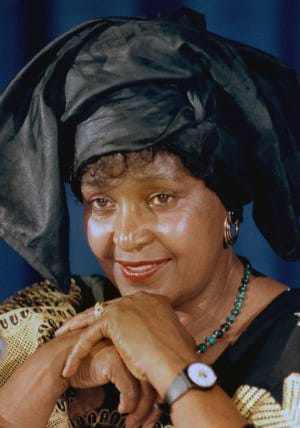
Will the corporatocracy ever give up its monopolies, its gated communities built on genocide and death of mostly non-whites and the poor worldwide? Atone for the crimes against humanity since their new world began? No.
White domination has no conscience. Haiti’s current occupation by the U.S.-Euros behind U.N. guns and the white saviors’ charitable industrial complex evidences the Western powers continuing 500-year-old international crimes.
Yes, Mandela’s legacy says we should live free, take our freedom and expect to exercise our own perfect self-expression just as Janjak Desalin intended for all children who would slide down the Black woman’s thighs.
Self-defense is a human right, even in a world lost within white domination and its seductive delusions.
Heroic mother Winnie Mandela, the Black South African leaders who stayed the course, the African majority, Haiti and the few of us in Haiti left still lifting up Desalin’s ideals have a right to self-defense. Reconciling with injustice merely delays justice for centuries, if not millenniums more.”
Ezili Dantò, award winning playwright, performance poet, dancer, actor and activist attorney born in Port au Prince, Haiti, founded and chairs the Haitian Leadership Network (HLLN), supporting and working cooperatively with Haitian freedom fighters and grassroots organizations promoting the civil, human and cultural rights of Haitians at home and abroad. Visit her at www.ezilidanto.com, where this story first appeared, and www.open.salon.com/blog/ezili_danto.
http://youtu.be/n0JAKEDDTvU





